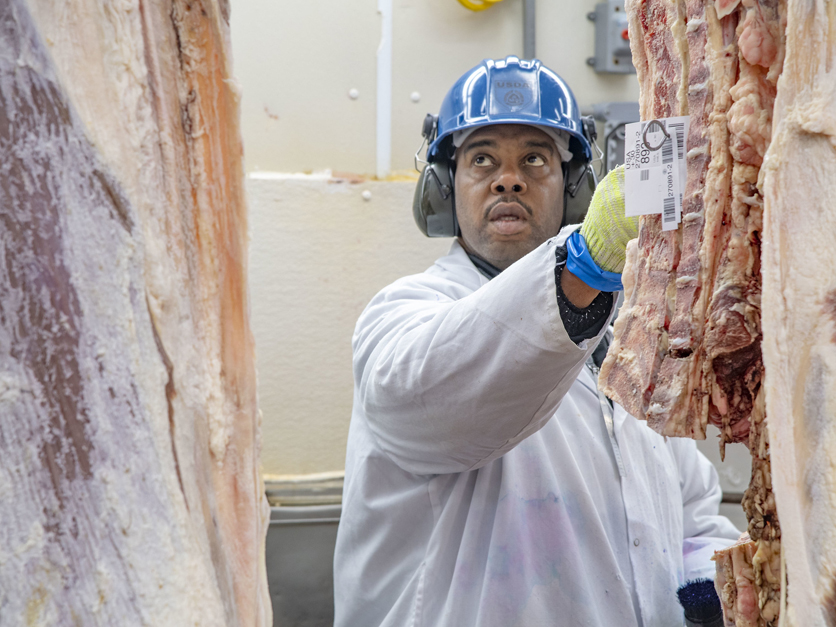U.S. Trade Representative Katherine Tai delivers a speech today on the Biden administration’s approach to the bilateral trade relationship with China. U.S. ag groups will have plenty of questions as they listen to her remarks:
Will the U.S. work with China on a “phase two” agreement? Will the Biden administration continue to keep tariffs on Chinese goods, thus assuring that Chinese retaliatory tariffs remain on U.S. ag commodities? What is being done to ensure China will live up to unfulfilled promises in the “phase one” deal?
Farm groups including the U.S. Wheat Associates and the USA Rice Federation are hoping for assurances that the U.S. will continue to work through the World Trade Organization to press China on reforming its import quotas and farm subsidies.
“We want to see the (Biden) administration take the next steps in the WTO litigation process to hold China accountable with the compliance requirements” of both the tariff rate quota and domestic support cases, a spokesman for USA Rice said Friday.
Vilsack announcing loan guarantees
Ag Secretary Tom Vilsack will announce long-awaited details today of a loan guarantee program that’s designed to expand meat and poultry processing capacity.
USDA said in July it would spend $500 million “to expand meat and poultry processing capacity so that farmers, ranchers, and consumers have more choices in the marketplace.” The department received thousands of comments on how it should spend the money.
Vilsack and the White House said last month that excessive market concentration in the meat sector has squeezed both consumers and farmers during the pandemic at the same time that meat processors have made more money.
Meatpackers have rejected charges of “profiteering.” They argue that a combination of factors, including the pandemic and a labor shortage, have prevented processors from operating at full capacity.
For more on this week’s D.C. policy agenda, read our Washington Week Ahead.
Biden agenda on pause
President Joe Biden is expressing confidence that Congress will pass his main policy priorities – a bipartisan infrastructure and the larger Build Back Better package of social programs and climate policy. But the path forward is less than clear after House Democratic leaders on Friday canceled a vote on the infrastructure bill.
Biden sided with progressives in linking passage of the infrastructure bill with approval of the bigger budget reconciliation measure.
"I believe I can get this done,” Biden told reporters this weekend. “I believe, when the American people are aware what's in it, we can get it done.”
There’s no immediate urgency to passing the infrastructure bill because the Senate gave final congressional approval to a bill extending the authority for federal highway spending for 30 days. Authority for the highway program expired on Thursday; the now-stalled infrastructure bill would have reauthorized the spending.
Beef, dairy need proper GHG measuring stick, paper says
The use of metrics that properly take into account the contribution of short-lived gases such as methane is critical to helping the cattle and dairy industry show how it can achieve net-zero warming, says a new paper from the University of California, Davis.
With the proper measuring stick, “goals of halting temperature increases can be met by achieving net zero CO2 emissions combined with stable or gently declining emissions of short-lived climate pollutants such as methane,” the paper says.
UC-Davis air quality specialist Frank Mitloehner and Elanco Animal Health Chief Sustainability Officer Sara Place say in the paper that “business-as-usual will not allow the U.S. beef and dairy industries to achieve net-zero warming.” But they say that goal would be “within reach as new and existing innovations that lower GHG emissions become more widely available, and adoption of those innovations are incentivized.”
Most methane emissions from beef cattle production come from cattle on pastures, not those in feedyards, so delivering feed additives, developing low-methane-emitting breeding strategies, and/or other innovations will be required, Mitloehner and Place write.
US, Vietnam resolve lumber friction, strengthen ties
The U.S. is welcoming new pledges from Vietnam to keep “illegally harvested or traded” lumber out of its supply chain. It’s the latest in positive development in the U.S. relationship with Vietnam, a country that American farmers and ranchers see as a growing market for their ag commodities.
“With this agreement, Vietnam will provide a model – both for the Indo-Pacific region and globally – for comprehensive enforcement against illegal timber,” USTR Katherine Tai said Friday.
Vietnam announced in August that the country would cut tariffs on U.S. corn, wheat and pork. The details haven’t yet been released, but the promise drew cheers from groups like the U.S. Wheat Associates and the National Pork Producers Council.

Tracy Stone-Manning
Stone-Manning weathers questions about past to earn BLM post
Tracy Stone-Manning has survived a bruising confirmation process to become the new director of the Bureau of Land Management. The agency manages about one of every 10 acres in the U.S., including 155 million acres of grazing land. Western Republican senators accused her of trying to whitewash her past involvement in a tree-spiking incident in Idaho.
Kaitlynn Glover, the National Cattlemen’s Beef Association’s executive director of natural resources, called BLM “an important partner to ranchers across the West.” Glover said NCBA expects Stone-Manning to "uphold the law, support multiple-use management, and recognize the important role ranchers play in managing and conserving these large landscapes.”
The National Wildlife Federation’s CEO, Collin O’Mara, said Stone-Manning “will bring visionary leadership and a collaborative management style that will restore and revitalize our public lands and waters.”
Take note: Although very critical of grazing earlier in her career, Stone-Manning said at her confirmation hearing she would work to shorten the time it takes for ranchers to receive permits.
He said it. “Everybody is frustrated. It’s part of being in government” – President Joe Biden, talking to reporters Saturday about inaction on the infrastructure bill.
Questions? Tips? Comments? Email Philip Brasher at philip@agri-pulse.com




